Filter by
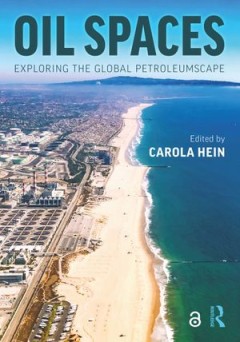
Oil Spaces; Exploring the Global Petroleumscape
Oil Spaces traces petroleum’s impact through a range of territories from across the world, showing how industrially drilled petroleum and its refined products have played a major role in transforming the built environment in ways that are often not visible or recognized.
- Edition
- -
- ISBN/ISSN
- 9781000449495
- Collation
- -
- Series Title
- -
- Call Number
- T 338.27282 HEI o c

Classical Economics and Modern Theory
In this thought-provoking book, well known economists Kurz and Salvadori cover original findings and new vistas on old problems. They cover: alternative interpretations of classical economists new growth theory the relationship between Sraffian theory and Von Neumann the treatment of capital in neoclassical long-period theory. Incorporating cutting-edge research and new work, this book will be …
- Edition
- -
- ISBN/ISSN
- -
- Collation
- -
- Series Title
- -
- Call Number
- 650
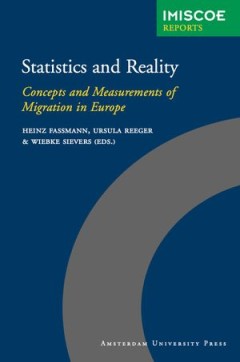
Statistics and Reality: Concepts and Measurements of Migration in Europe
In the last decade, there has been a distinct trend towards a worldwide harmonisation of migration statistics, chiefly pushed by international bodies and organisations that need comparative data. Statistics and Reality shows that these attempts have as yet not been very successful. It provides an accessible account of the history of migration measurement in Europe and analyses the current conce…
- Edition
- -
- ISBN/ISSN
- 9789089640529
- Collation
- -
- Series Title
- -
- Call Number
- 351.81 STA s
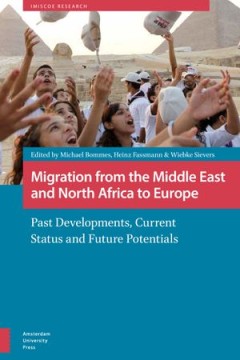
Migration from the Middle East and North Africa to Europe: Past Developments,…
One of the most important challenges concerning the future of the European Union is the demographic reproduction of the European population. Decreasing birth-rates and the retirement of the baby boomers will dramatically reduce the labour force in the EU, which will entail not only a lack of manpower but also lower contributions to European social systems. It seems clear that the EU will have t…
- Edition
- -
- ISBN/ISSN
- 9789048523177
- Collation
- -
- Series Title
- -
- Call Number
- 300 MIG m
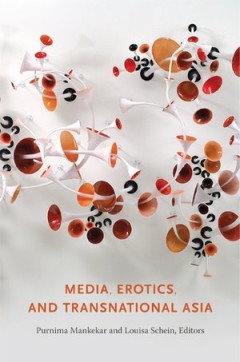
Media, Erotics, and Transnational Asia
Drawing on methods and approaches from anthropology, media studies, film theory, and cultural studies, the contributors to Media, Erotics, and Transnational Asia examine how mediated eroticism and sexuality circulating across Asia and Asian diasporas both reflect and shape the social practices of their producers and consumers. The essays in this volume cover a wide geographic and thematic range…
- Edition
- -
- ISBN/ISSN
- 9781478091431
- Collation
- -
- Series Title
- -
- Call Number
- -
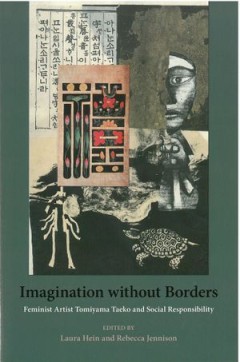
Imagination without Borders: Feminist Artist Tomiyama Taeko and Social Respon…
Tomiyama Taeko, a Japanese visual artist born in 1921, is changing the way World War II is remembered in Japan, Asia, and the world. Her work deals with complicated moral and emotional issues of empire and war responsibility that cannot be summed up in simple slogans, which makes it compelling for more than just its considerable beauty. Japanese today are still grappling with the effects of …
- Edition
- -
- ISBN/ISSN
- 9780472901623
- Collation
- -
- Series Title
- -
- Call Number
- 302.3 IMA i

Hacking the Academy : New Approaches to Scholarship and Teaching from Digital…
On May 21, 2010, Daniel J. Cohen and Tom Scheinfeldt posted the following provocative questions online:“Can an algorithm edit a journal? Can a library exist without books? Can students build and manage their own learning management platforms? Can a conference be held without a program? Can Twitter replace a scholarly society?”As recently as the mid-2000s, questions like these would have bee…
- Edition
- -
- ISBN/ISSN
- 9780472900251
- Collation
- -
- Series Title
- Digital humanities
- Call Number
- 001.2 HAC
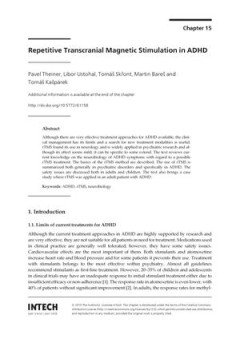
Repetitive Transcranial Magnetic Stimulation in ADHD
Although there are very effective treatment approaches for ADHD available, the clinical management has its limits and a search for new treatment modalities is useful. rTMS found its use in neurology and is widely applied in psychiatric research and although its effect seems mild, it can be specific to some extend. The text reviews current knowledge on the neurobiology of ADHD symptoms with rega…
- Edition
- -
- ISBN/ISSN
- 9789535121664
- Collation
- -
- Series Title
- -
- Call Number
- -
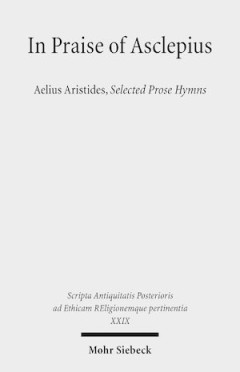
In Praise of Asclepius Aelius Aristides, Selected Prose Hymns
In the second century AD Aelius Aristides wrote eight prose hymns to Greek gods. This volume presents a new edition of the Greek text of four of these hymns (focusing on Asclepius), a new English translation with notes, and a number of essays shedding additional light on these texts from various perspectives.
- Edition
- -
- ISBN/ISSN
- 9783161536595
- Collation
- -
- Series Title
- -
- Call Number
- -
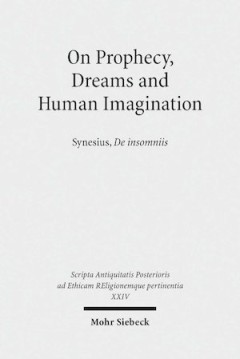
On Prophecy, Dreams and Human Imagination Synesius, De insommniis
Synesius' essay De insomniis ('On Dreams') inquires into the meaning and importance of dreams for human beings and treats themes - most of all the relationship of humans to higher spheres -, which for religiously- and philosophically-minded people are still important today.
- Edition
- -
- ISBN/ISSN
- 9783161524196
- Collation
- -
- Series Title
- -
- Call Number
- -
 Computer Science, Information & General Works
Computer Science, Information & General Works  Philosophy & Psychology
Philosophy & Psychology  Religion
Religion  Social Sciences
Social Sciences  Language
Language  Pure Science
Pure Science  Applied Sciences
Applied Sciences  Art & Recreation
Art & Recreation  Literature
Literature  History & Geography
History & Geography